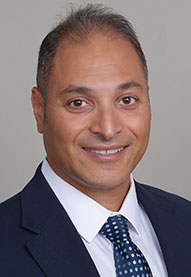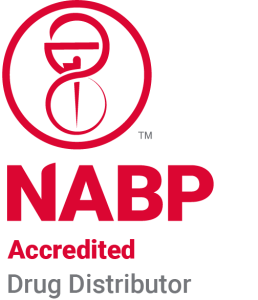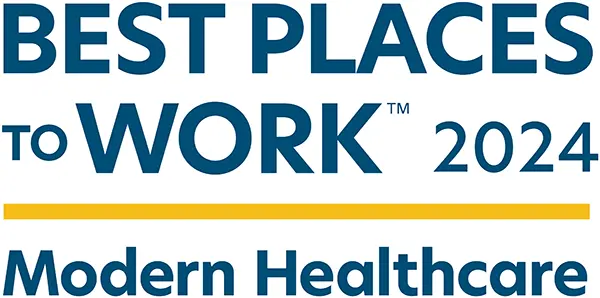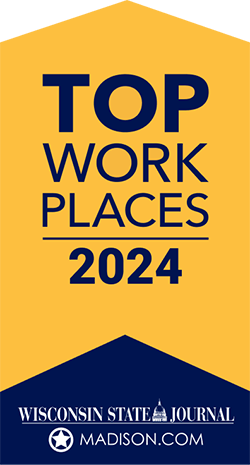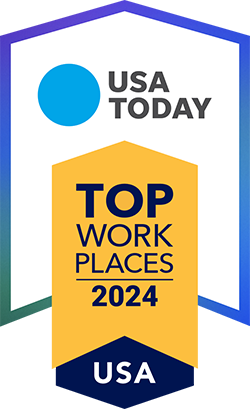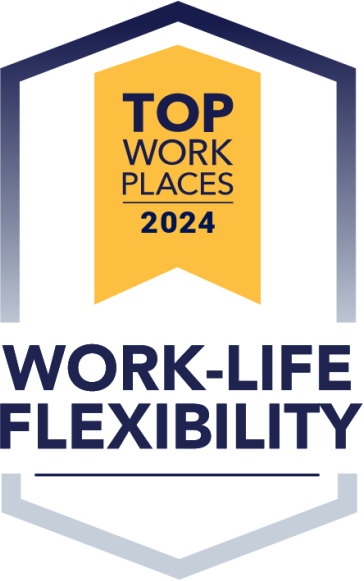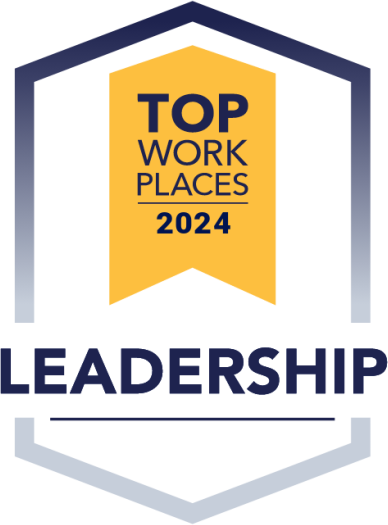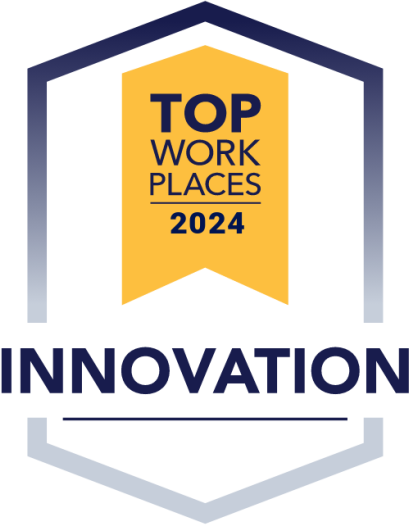IPC is honored to have hosted Todd Eury and the Pharmacy Podcast Network in our booth at the 2023 NCPA Annual Convention in Orlando this October. Take a listen to this first edition of the Recap including interviews with powerhouse industry leaders such as:
- Kelley Babcock, Co-Founder of Leadership Growth Formula
- Ashton Maaraba, President of IPC Digital Health
- Bill Drilling, Pharmacy Owner of Your Hometown Pharmacist
- And more…
The NCPA 2023 Annual Convention is an important moment each year to gain insights and key strategies to bring to your pharmacy.
Listen to more podcasts in the Cooperative Connection.
This podcast is part of a series.
- Listen to episode two.
- Listen to episode three.
Transcript
Sponsor VO (00:08):
Whether you are starting a new pharmacy or have been in business for years, partnering with the right buying group is important to your business. IPC Independent Pharmacy Cooperative is the nation’s largest GPO, and for the last 40 years has been committed to developing revenue opportunities and enhancing profitability for our members. We support our members through effective purchasing strategies. Expert advice on expanding services. Returning 100% of your rebates and IPC members receive an additional yearly payout of cooperative income. IPC is the right partner for successful pharmacy owners who want to secure their position as an essential healthcare provider in the community. Visit ipcrx.com to take control of your business today and future proof your pharmacy for tomorrow.
Todd Eury (01:01):
You are listening to the Pharmacy Podcast Network.
Todd Eury (01:09):
Hey, this is Todd Eury. CEO of the Pharmacy Podcast Network. We’re here live in Orlando, Florida at the National Community Pharmacist Association’s 2023 coverage show. We can’t wait for you to hear these amazing interviews.
Todd Eury (01:25):
Welcome to the Pharmacy Podcast Networks press coverage of the National Community Pharmacy Associations annual conference. Hundreds of ISTs pharmacy owners, technicians, and students attended the 2023 and CPA annual convention at the Orange County Convention Center in Orlando between October 14th and October 17th. Thank you to the Independent Pharmacy Cooperative, known as IPC, for being our media support sponsor for this three-part series. And now here’s part one with our host CEO and founder of the PPN Todd Eury.
Todd Eury (01:58):
One of the most energizing and inspiring people that I’ve met in pharmacy through PDS years ago, probably over 10 years ago, was Kelley Babcock and she is here with us at the IPCRX booth here at the NCPA 2023. Kelley, I cannot believe that it’s taken this long to get you on one of our shows.
Kelley Babcock (02:18):
I can’t either. Todd, thank you for having me.
Todd Eury (02:20):
You’re very welcome.
Kelley Babcock (02:21):
Oh my goodness,
Todd Eury (02:22):
Like I said, you’ve always been inspirational to me. You talk with not only authority, but you talk with joy, and I picked that up in your voice.
Kelley Babcock (02:30):
Thank you. I certainly try to bring that to the table and it’s easy because I have such a passion and a heartfelt desire to support independent pharmacy. It’s easy. And this has just been the greatest show to be able to reconnect with old friends and make new ones and to see folks that I’ve known for years like you. So thank you for having me.
Todd Eury (02:55):
Well, you’re very, very welcome. It’s good to have you here. You know what, there’s an aspect of community pharmacy that I was talking with Dr. Ken Tai about with 9 86 pharmacies, and that was the subject of leadership and how the NCPA is leading community pharmacies from so many aspects, especially policy development, PBM reform, and we understand that. But if we start to get home, we start to take ourselves to our pharmacies and a community pharmacy owner sets at the end of the day and they’re realizing, what am I doing right and what am I doing not so right or wrong in not leading my team in order to get more for less sometimes because sometimes there’s less money in the pot. And I want you to speak on the concept of leadership because you have spent years and years and years defining what leadership is and how to roll that leadership concept out to community pharmacy owners.
Kelley Babcock (03:55):
Well, absolutely. So Todd, let me just say that ironically 13 years ago when we surveyed independent pharmacy owners about the number one pain point they experienced universally it was leadership, how to be a leader, clearly trained to be a pharmacist. And yet now I’m running a business. Now I’m operating at a different level. I have people that are responsible, that I’m responsible for and how do I motivate, how do I inspire? How do I manage these people to get the best performance and the best results for the business? And so fast forward 13 years later, leadership and confidence in leadership is still at the top of the list. And this is not just the world according to Kelley Babcock, this is NCPAs. Having surveyed its members and understanding that it still feels elusive. And so, my desire and our goal with creating my business partner, Terry Norvell and I, we actually co-developed and co-facilitated an advanced leadership program for independent pharmacy owners and their teams that we’ve now delivered since 2013. So, 10 years ago, to literally over a thousand pharmacy owners and their teams through pharmacy development services. And so, we know, we see it in action. We know what works. We wanted to create a program that really helped people break it down. Like you said, when they get back into their pharmacies and it’s Monday morning and it’s now, I might be the, oh my gosh, I might have the best clinicians, I might have rockstar technicians. At the end of the day if I personally am not confident in my leadership ability. So, we want to break it down, we created a formula, let’s make it this easy, let’s make it concrete. Let’s give you the tools and the resources necessary to just lead yourself first and then lead your team. And I know that NCPA is wildly supportive of that, and we hope to partner with them in the coming months ahead to bring a program like that to NCPA members. Listen, you have to start with managing yourself first and being a leader in your own life and then that it’s that old saying that a rising tide floats all boats. So you elevate your skills in one area and you begin to show up who you are is how you lead. So we focus a lot on getting you clear on who you are so that you can be the best version of yourself and then lead your team with passion, with competence, with confidence.
Todd Eury (06:54):
Yep. That’s very important. Well, I struggle with consistent leadership myself, so I would understand pharmacy owners who reach out to you to say, Kelley, where do I start? So as someone’s listening right now, they didn’t get to come to the NCPA. Maybe they did, but they didn’t get to have a chance to talk with you. How do they reach out to you?
Kelley Babcock (07:16):
Find us easily. It’s leadershipgrowthformula.com andKelly@leadershipgrowthformula.com. Is my email address. You can find us on LinkedIn. On Facebook. On Instagram, Terry Norvell and I are committed to supporting our mission. It is very simple; help you be a better leader. We just want to support you in being a better leader. And we know that exponentially the impact that that can have in this community, in the independent pharmacy community. And so, we are committed to providing onsite programs. We are doing live two and a half day sessions throughout the year. So, I believe that there’s a way for us to customize this for any leader in the independent pharmacy space and community pharmacy leadership growth formula.com once more with feeling leadershipgrowthformula.com.
Todd Eury (08:16):
And if you can’t find Kelly on LinkedIn or the web, if you reach out to Pharmacy podcast, I will get you in touch with Kelly. Absolutely. We have to have you back. I want you to come back. Let’s do it this week in pharmacy.
Kelley Babcock (08:29):
Yes.
Todd Eury (08:29):
Let’s talk about leadership. Let’s centralize this.
Kelley Babcock (08:31):
Without question. You will find, as you now know, that I am not short on things to say about leadership, it’s been my passion. I’ve managed and led teams for my entire adult career, and it is the most challenging and yet can be the most rewarding thing you ever do.
Todd Eury (08:52):
That’s awesome. Thank you, Kelley. Thank
Kelley Babcock (08:53):
You. Thank you, Todd.
Todd Eury (08:54):
I was jealous of an interview that Ashton did with Bruce Kneeland on Pharmacy Crossroads because I wanted to ask you some additional questions. So, I am glad you’re here at the IPC booth at NCPA 2023. Ashton, welcome to the show!
Ashton Maaraba (09:19):
Todd, thanks for having me on.
Todd Eury (09:21):
So, you are fascinating with what you are building through IPC, the digital health portfolio. I want you to give our listeners, just in case they haven’t understood what’s actually being built. This is exciting, the clinical monitoring documentation, the point of care testing, and actually what makes me more excited is getting paid for stuff. So, talk to our listeners about this new division.
Ashton Maaraba (09:47):
Yeah, certainly Todd. So first and foremost, I just want to be able to say that it’s definitely been a team effort at IPC when we talk about what I’ve been building, it’s in actuality, it’s what the team’s been building together as a group. It started out with a vision. We went through the ideation stage and we put ourselves in a position to be able to take a look at what our, after listening to our members, what are our members’ needs. We looked at the type of innovation in the sense of we’re looking at what’s out there today, telehealth, telemedicine, how do we blend it all together as a member owned cooperative to make sure that the value is there and to end. And so our company, IPC Digital Health has a brand called iCare Plus. Our goal was to create a network under the brand and under that brand there are five pillars. Pillar number one, which we talked about before is our telehealth platform. Pillar number two, we focus on home health kit and point of care testing. Pillar number three is people Transport and prescription savings program. Being a wholesale distribution company gives us the opportunity to develop our own formulary, and engage into offering our own discounts on generic drugs, very similar to what the discount care card providers, how they work today. But the difference is is that we have our own homegrown formulary and we have a whole special program around that, which is much easier from a prescription acquisition standpoint in terms of the fees that are typically tied around traditional cards. So that’s a great opportunity for us as well. When I talk about people transport, you may have heard about our recent press release that went out where we engaged into a partnership with Uber Health. So one of our biggest benefits into our remote patient monitoring platform, that’s part of our telehealth strategy is to have the opportunity to be able to get patients to their medically necessary appointments. Big problem there that patients have faced and that remote patient monitoring platforms or reimbursements. Where they failed in the past is that we couldn’t get the patient to the doctor in order to fulfill the care plan. So when you talk about things like excited about reimbursement, it comes from fulfilling the obligation end to end of the protocol that’s tied to a specific engagement or a disease state where the patient requires intervention with the various care providers, including our pharmacists. The final piece is what we’re looking to administer is a copay assistance program, a platform which we call patient affordability program. So we’re under our Eyecare plus network. We’re able to represent ourselves much more appealing to brand manufacturers that are looking to administer an opportunity when it comes to expensive drugs with therapy treatments, throughout different demographics. So it’s something that we embrace we’re bringing into our culture as well. But realistically, I mean it’s a big project, so we have to take a step back and really evaluate what makes sense to launch first, and that’s our telemedicine and telehealth platform. We have various types of reimbursements built into it at a grassroots that focus on cash patient reimbursement. I’m not going to spill all the beans right now, but it’s something we’ve been able to work into our platform. And then also integrations with home health Kit labs, home health kits is a way that we can merchandise distribute from our distribution facility directly to the stores. And then the interoperability or the integration with the Home Health Kit Labs is a way for patients to receive the results directly into the mobile app. And then the same time the pharmacist can go into the provider platform and take a look at those labs and follow up with a call on our platform as well.
Todd Eury (13:46):
So it’s a major paradigm shift where there’s a lot of community pharmacy owners listening right now and they think, my goodness, while there’s opportunity here that’s being built out of this platform and digital health tools and being able to be paid to do clinical services makes sense. That’s a big paradigm shift from where we were for the last a hundred plus years in pharmacy, which was all kind of driven by the NDC number and the medication that was being dispensed. So there’s a challenge there for pharmacy owners to kind of think this through, especially if they think is the payment going to come? Is it really going to happen? So talk to me about that whole concept of this big shift in what a pharmacist is going to do in the future.
Ashton Maaraba (14:43):
So we like to say the future is now with the way we’ve strategized our platform, I think traditional platforms didn’t really take off as well in our opinion because they weren’t designed around the active CPT codes that are designed exclusively for remote patient monitoring and that were released by CMS. We built our platform around the fundamentals very easy. The codes are published. If we’re talking about government-based insurance, we get a patient involved into a care plan. The platform is customized in order to cater to that care plan, pull the data and have it submitted for reimbursement using the physician’s NPI. The second thing is forget about even the insurance aspect of it, think about the cash patient strategy. We have our own provider network. What makes this unique is that we’re able to break the barriers where historically may have violated, let’s say stark anti-kickback. We’re dealing with a cash patient. There are no controls being written on the platform. We’re dealing with a cash patient who’s picked up the prescription and paid cash. We have the opportunity to incentivize our pharmacist directly for what we call telepharmacy light. So we spent an extreme amount of time, we extended our scope of research. We hired some of the most outstanding legal researchers and attorneys to work with our general counsel at IPC and other major benefit to our members advocating on behalf of this opportunity and found that we were a hundred percent in compliance with signing off on umbrella agreements with our own providers, providing that we met the core requirements that were necessary in order to reimburse our pharmacists, providing they make a qualified contact with that patient, fulfill the intervention requirement. After that prescription’s been written on our platform to them and that patient’s picked it up paying cash. So we created a self administrative and reimbursement process outside of the insurance paradigm, so to speak. As phase one. We wanted to get this off the ground quickly. We also created what we call that integration with home health kit labs. So we can merchandise, we can merchandise critical important home health tests directly from our stores so patients can save exponentially those that don’t have insurance or even underinsured from having to go to a lab and spend thousands and thousands of dollars on a test that we’re much more affordable at the store level and can be sold directly at the store for a margin. We looked at the simple things in terms of making sure that most patients don’t really understand those lab results that come back. They need help, they need a facilitator, and I shouldn’t speak for every patient, but I think it becomes more complex when you have lab results that come back. You’re looking at the results and you’re trying to make sense of them. If these results are coming directly back from their, if you’re connected to your, what we like to call the pharmacist as a provider and they have access to those results, the simple feedback and the engagement between their pharmacist and them is realized in the result that comes back in the consultation tips that are built into that lab report. So the platform allows the two to engage makes sense of that report and guess what? The patient saved thousands of dollars and the pharmacists made a little bit of money as part of, again, our phase one deployment. So we took a lot of things in consideration. There’s a big picture in terms of our future proofing strategy, which you’ve heard that headline a lot in terms of future proofing independent pharmacy, we have again, the luxury of doing a lot of things being a distributor. We’ve historically focused on a lot of, again, like you said NDC molecules, but we’re looking at also from the home testing standpoint, how can we make it even easier for the patients? We think we can drive a more compliant patient through our pharmacy network with the right tools and resources, and we believe that we can also generate stronger interest from payers private plans because of that type of network status. So they’re not just, let’s say working with independent pharmacy down the street, they’re working with an independent pharmacy that’s known as icare plus. That’s part of a much broader network with greater of aggregated data and volume in order to really address the needs in areas where there are social health inequities, for example. So yeah, we’re very excited how far we’ve come. We’re getting ready for our process-based alpha test. What that means, it’s something really simple. In order for us to support a program like this at scale, we have to make sure that it’s embedded within the IPC infrastructure. That means the support services, everything that our members have come to trust and rely on from the traditional model and then modernized model that can speak to these type of adherence based digital platforms so they get the right service based on their type of need and then their patients are also care take to as well. The other piece as well is we have to test our processes, which we like to call a sale to delivery approach. So we can take on an order, get it to the store, and then we trigger our training and get the stores ready to operate under the uniformed iCare plus brand.
Todd Eury (20:07):
Excellent. Oh, Ashton, we’re going to be looking forward to hearing more about this and then eventually do some interviews with members who have engaged and have rolled it out. So I’m excited to be a part of this. It’s so great to be here at the IPC booth here at the NCPA 2023, and we appreciate your insights.
Ashton Maaraba (20:27):
No, no problem. We’re very excited. We’re in the process right now of generating a lot of buzz. I think one of the things that we can’t forget, and I think just me being on the vendor side for so many years, I think the most important thing now that I’ve made the switch to the retail side, our members need to really understand what we’re investing in in terms of long-term picture, what value we’re bringing to the table. So to isolate it and kind of just keep it locking key in a closet, that’s not our strategy. So we’re building the hype. We’re making sure that we tell the story. It may not be as clear to some folks that haven’t really seen it end to end, but the key is that that’s where our mindset is. That’s where our expertise is. That’s where our team comes from. We’re investing heavily in expertise and simplicity, and we’re taking this as a phase-in approach rather than just throwing a marketplace of programs out there and just saying, Hey, you do with it, would you please? We’re really heavily invested in end-to-end concierge white glove service model, because that’s the way we think this is going to work, we’re there to help support our members accelerate at this program. And like you said earlier, Todd, we’re mitigating the reliance on prescription reimbursement, just really not there anymore. Not as much as it used to be. Right.
Todd Eury (21:37):
Thank you, Ashton.
Ashton Maaraba (21:38):
Thank you.
Todd Eury (21:47):
Hey, I am here at WVU School of Pharmacy with a class of what, 20 20
Tim South (21:57):
2025, My name is Tim South and I’m a third year student.
Todd Eury (21:54):
And then what podcast is WVU working on as a collaborative show?
Tim South (21:57):
So, I am part of an interprofessional team of healthcare students. We are IRB approved. This is WVU funded to start a podcast that is working on spreading awareness of marginalized healthcare populations and stigma in healthcare and how we can provide better care as providers. The name of the podcast is West Virginia Voice or WV Voice. It’s W-V-O-I-C-E. And we’re going to be dropping our first episode in the next day or two. We’re going to put out one episode per month for 11 months, looking at 11 different populations that are stigmatized or marginalized within healthcare. And then in the final month, we’re going to have a panel of healthcare professionals talk about potential ways to overcome some of those barriers that we see and look at some of the themes that come up across all of these populations to better serve them in the future.
Todd Eury (22:47):
WVU voice, you heard it here first, WVU School of Pharmacy. I’m excited to have connected with you. We’ll definitely Help push this content out. If there’s anything else that we can ever do for you to amplify what you’re working on, let us know. But thank you so much for being part of this very short episode.
Tim South (23:07):
Thank you so much for having me.
Todd Eury (23:14):
We are here at the IPC booth here at the NCPA 2023 with Bill Drilling. Bill, welcome to the show.
Bill Drilling (23:22):
Thank you for having me. I’m Bill Drilling. I’m a pharmacist and co-owner of Drilling Pharmacy in Sioux City, Iowa. We’re the northwest corner of Iowa. We’re a combo pharmacy, meaning we’re both retail and long-term care. We’re a CPS in Iowa member, and we’re trying to offer many different clinical services to our customers, such as rapid testing for covid, influenza and strep. We can also treat for strep and influenza in Iowa. We’re doing A1C testing lipid panel. We’re putting together a wellness program. We’re doing smoking cessation, and we do all the immunizations. Plus we’re going all over Sioux City to the smaller businesses putting on onsite vaccination clinics.
Todd Eury (24:19):
So what I’m curious to hear from a pharmacy owner’s point of view is the blending of community and long-term care. Now they’re calling it long-term care at home.
Bill Drilling (24:30):
Yes.
Todd Eury (24:31):
What are you doing to evolve into that model?
Bill Drilling (24:35):
Well, I think that is definitely a good model to evolve into. I think that’s the way of the future. We basically do all the services already. We do compliance packaging, we do deliveries. So I think it is an easy transition for pharmacists to go into medical at home, and I think it is a huge untapped market that we can all work toward and work our pharmacies into.
Todd Eury (25:04):
So one of the challenges that I’ve heard from other pharmacy owners who are wanting to build their long-term care at home is having coverage 24 hours a day of being able to have a pharmacist may possibly answer a question. How are you navigating and or overcoming that?
Bill Drilling (25:21):
Well, we’re still kind of working on that because that is a challenge, and I don’t think I have a hundred percent answer.
Todd Eury (25:30):
I don’t think anybody does.
Bill Drilling (25:32):
And we have, we’ve worked with GeriMed too, and they are an IPC preferred vendor, and they have a coverage company called GeriScript, and I thought I might look into that and see how that would work out.
Todd Eury (25:48):
So what is it like to be part of a buying group that you are actually an owner in? Tell me about the experience of working with IPC.
Bill Drilling (25:57):
Well, for us, it’s been a wonderful experience that everybody that I’ve talked to or worked with, IPC has been wonderful to work with. We’ve been very fortunate. They have a very good professional services team and they’ve helped us navigate through different things and helped us get new programs in the pharmacy going in. They really have the game changing expertise that a small pharmacy needs. Then we’ve also taken advantage of the warehouse and their generics. So, for us, it has been a very good fit. And at the end of the year, we always get our equity payouts, which is nice, which is a benefit of ownership, and we have an independent board of directors. So, it has been a really good deal for us.
Todd Eury (27:00):
Excellent. Bill Drilling, we really appreciate your participation in the NCPA 2023 post show, and we want to say thank you for being a community pharmacist.
Bill Drilling (27:09):
Well, Thank you. And I just think that we are very fortunate. I think I’m very fortunate to be a community pharmacy owner, and I’m very lucky to have such a nice community to work in. I think all the independent pharmacies across the country can really offer more services and take better care of their patients than the chains, and I think that’s why we need IPC and our team because they can help us accomplish that goal.
Todd Eury (27:35):
Thank you so much, bill.
Bill Drilling (27:36):
You’re welcome.
Todd Eury (27:41):
David Vasenden, how are you?
David Vasenden (27:49):
I’m very well, thank you.
Todd Eury (27:51):
Alright. We are here NCPA 2023 at the IPC booth. It’s been great to be part of this group. This group is full of energy. We’re listening to some of the innovation coming out of the digital health initiatives that they’re doing, being able to do clinical billing and testing, as well as the strategies around buying and really being able to rely on a partner that has a bunch of members that are owners of the organization. But you can share ideas between each other. I want to hear your story, David, though. Tell me about your community. Tell me about the pharmacy that you have built, Sierra Specialty Pharmacy. Share this with our listeners.
David Vasenden (28:28):
Sure. I’ve owned a pharmacy since 1998, so about 25 years or so, give or take. Been very interesting run through. And I started in a full retail world and now I’ve kind of ended up in the specialty or long-term care world servicing homes in the ALFs facilities and then also a compounding shop. So it’s kind of been a little bit of a changeover for me over the years, but I’m very happy to be where I’m at right now and I’m excited for the future.
Todd Eury (29:01):
So there are some organizations that tiptoe into compounding that don’t have to do sterile compounding, for example. They’re just doing some basic things. Are you able to help other community pharmacies out with some more intense compounding needs?
David Vasenden (29:17):
I do not have what they would call a 503B designation, so I can’t give people compounds; I mean, I can give people my 2 cents worth as far as that goes. We can do that all day long. So, I’m a single use individual, we do non-sterile hazard and hazard and non-hazard product. So, we’re all compliant with the new USB 800 and it’s coming out and all their regulations and stuff that’s going to be active here shortly.
Todd Eury (29:51):
Yep. So talk to me about long-term care because that’s how I entered pharmacy way back in 2004 was long-term care pharmacy, and that’s how I learned about pharmacy dramatically different in its pure state than community. However, we’re starting to see this blend. We’re starting to see this long-term care at home. So, talk to me about the evolution of what you feel is going to be taking place in long-term care pharmacy.
David Vasenden (30:15):
So with long-term care, it’s going to be kind of exciting to see what happens in the next few years with reimbursements and all that. I don’t service any SNFs, so it’s just ALFs and group homes. And then we have taken on some of the LTC at home patients, and it’s a great service. It’s a great service to provide to them, and I hope it continues to grow the way they hope it’s going to grow. To be able to get people the medication they need in a unit dose or to help the patient become compliant with their packaging or their products only going to help them keep ’em out of the hospital and help their overall success in being healthy.
Todd Eury (31:06):
What do you think the biggest change is to the business of pharmacy within the last five years?
David Vasenden (31:18):
The biggest change I see in pharmacy is regulation. We’re all being squeezed on all the ends on regulation and then reimbursements. We’re trying to do more with less, and we’re always trying to find the next niche market to help support our love, which is pharmacy. It’s basically what it boils down to and support our patients the way we feel they need to be supported.
Todd Eury (31:47):
David, we appreciate your representation of being part of the board at IPC as well as being part of the post show. Thank you for participating and thank you for what you do in your community through pharmacy services.
